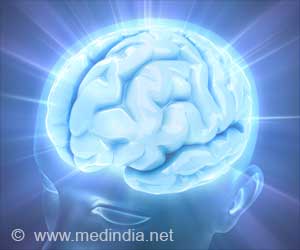Doctors worldwide are now warning of the dangers of ignoring ‘Cholesterol levels in Diabetics,’ a factor that would increase the risk of heart disease and may even cause death.

When too much LDL cholesterol, also known as bad cholesterol, circulates in the blood, it can slowly build up in the inner walls of the arteries that feed the heart and brain. The American Heart Association says: “Together with other substances, LDL cholesterol can form plaque - a thick, hard deposit that can narrow the arteries and make them less flexible. This condition is known as atherosclerosis. If a clot forms and blocks a narrowed artery, heart attack or stroke can result.”
Hence it will be ideal for patients to maintain LDL cholesterol level that is below 100 milligrams per deciliter or even better 70 to 80.
Generally diabetes is a disease of smaller vessels and causes micro-angiopathy. However according to Dr A Ramachandran of the India Diabetic Research Foundation (IDRF), diabetics who fail to control their cholesterol levels face an increased risk of macro vascular (larger vessels) complications. These complications can occur in blood vessels in any part of the body.
Incidentally, some studies have revealed that heart disease causes about 70 per cent of the deaths in people with diabetes. Also, the risk of dying from heart disease for men with diabetes is two to three times greater and for women with diabetes three to four times greater than for people without diabetes.
In India, Dr Ramachandran says, approximately 50 per cent of the diabetic patients face the risk of heart attacks.
But he did admit that many Indian doctors were not aware of an ideal LDL cholesterol level. “It is true that many doctors do not even know that an LDL cholesterol number that is normal for someone without diabetes is not normal for someone with diabetes,” he said in an interview to Medindia.
Dr.Ramachandran suggested that diabetics adopt a Life Style Modification Diet (LSM-Diet) and an exercise regimen to keep cholesterol levels under control.
He cautioned that merely losing weight was not enough to control diabetes. “At the initial stages, adopting life style modification like switching over to healthy eating habits and regular exercises may help to maintain blood sugar levels. But once someone becomes insulin dependent such strategies won’t work. Besides LSM-Diet may work only in obese patients and not for all,” he said.
As an alternative, patients can take drugs such as statins.Fibrates that improve HDL, the good cholesterol, are also administered along with statins. Some doctors, however, are against the use of long term ‘statins,’ a class of drugs that lowers the level of cholesterol in the blood by reducing the production of cholesterol by the liver, since it could cause side effects including headache, nausea, vomiting, muscle pain and diarrhea. In some cases, over use of statin can be even cause liver failure and rhabdomyolosis (muscle damage).
But Dr Ramachandran said while sometimes statins did lead to increased liver enzymes and myalgia (muscle pain), these were not very common side effects and therefore he would readily recommend the use of statins to his patients. (Elevated liver enzymes could indicate an underlying liver disorder.)The other solution to control cholesterol levels was to provide treatment based on the associated risk factors for Coronary Artery Disease (CAD), he said.
CAD can be treated, either with angioplasty or medications. The blood vessels of the heart are known as coronary arteries. These blood vessels may get blocked due to various reasons leading to heart diseases Angioplasty, otherwise known as Percutaneous Coronary Intervention (PCI), is a medical procedure that helps to clear the blocked coronary arteries. Tiny tube meshes called ‘Stents’ are used for the procedure. They lend support to the blood vessels, rendering them open.
Angioplasty helps to reduce the chest discomfort or other symptoms that are inherent to CAD. Angioplasty with stenting is a life- saving procedure, which may help to stave off a heart attack.
Medications employed in treating CHD :
• ACE inhibitors (reduces blood pressure )
• Blood thinners (reduces the risk of blood clots)
• Beta-blockers (to control hypertension and reduce heart rate)
• Calcium channel blockers ( lowers blood pressure, reduces heart strain by relaxing arteries)
• Diuretics (lowers blood pressure)
• Nitrates (eg nitroglycerin, controls angina, improves blood supply to the heart)
• Statins ( reduces cholesterol )
The doctor must be contacted in case of any discomfort.A balanced diet and a healthy lifestyle will surely go a long way to ensure a ‘heartening’ life!
Source-Medindia
AK/C











